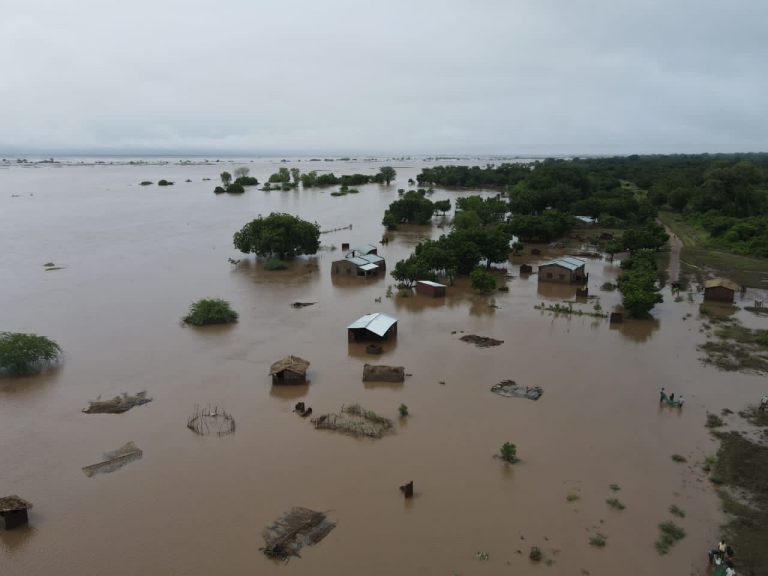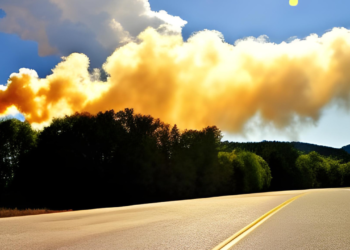It was in March 2023, when tropical cyclone “Freddy” hit Malawi after its long trail of destruction in Mozambique and Madagascar. Though warning had already been issued by Department of Climate Change and Meteorological services of Malawi but poor country was not well equipped to face the wrath of Freddy. Malawi is a landlocked country in Southern Africa with majority of population dependant on agriculture having limited access to primary education and electricity.
At that time, Malawi was already battling the outbreak of cholera and the cyclone only worsened the situation. People witnessed the destruction caused by torrential rainfall and mudslides; large boulders entering the houses and destroying everything. As per UNESCO assessment, Cyclone has affected around 2 million people, hundreds have been killed and almost half a million people have been displaced. This incident is taken as a “Wake-up Call” by Climate activists around the world as they link Cyclone Freddy with Climate Change.
Why Freddy is linked to climate Change?
Though a single event cannot be directly linked to climate change but there are some dots; when connected point towards the link of Freddy with Climate change. There is evidence that climate change is causing the tropical cyclones to become more intense and NASA has confirmed that Freddy has the highest accumulated cyclone energy (ACE) than any other cyclone in the southern hemisphere.
Apart from this, global warming is associated with severe rainfall as warmer temperatures increase the tendency of clouds to hold more moisture. As per the laws of thermodynamics, there will be 7% more water vapours for every one degree rise of air temperature. The rising sea level further exacerbates the possibility of coastal hazards such as flooding and storm surges. There is need of more research to establish the direct link of intensifying tropical cyclones with climate change but at the same time, available evidences and data cannot be ignored.
Socio-Economic Impact on Malawi
Year 2023 is going to be really hard for Malawi as people living in shelter camps are fighting with hunger and disease. Floods have destroyed the crops which in turn inflated the prices of food. There is a great loss of infrastructure as roads, bridges, hospitals, and schools need to be rebuilt; homeless people need to be rehabilitated. People lost their loved ones and were forced to cremate several dead bodies together in one grave amidst the wrath of nature.
Malawi was already an underdeveloped country receiving humanitarian aid from various international organisations. How can people think about education and better quality of life when getting at least one meal a day is a real struggle. International organisations around the world have stepped in to offer help and show solidarity with Malawi in this hour of need but this climate tragedy has popped the question of climate justice.
Why this is a matter of climate justice?
We all know that climate change is real and culprit is unsustainable development driven by human greed and ignorance. But why people who have negligible share in climate change are facing some of its worst outcomes? I am sure those innocent people have no idea of climate change or global warming as many people were equating mudslide to ‘Napolo’- a mythical snake that resides in the belly of mountain. It is painful to see that people with insignificant share in global carbon footprints are worst hit by carbon-led growth and development.
What can be done?
There are not enough employment opportunities available for growing Malawian population and people are extending the arable land by clearing the forest cover. Apart from this, large proportion of population is dependent on firewood for cooking. The country has lost significant forest cover in the past decades. Land devoid of vegetation cannot handle soil erosion; very less rainwater seeps into ground and this is one of the reasons behind severe floods.
As World Bank has mentioned, operations are in process to rebuild Malawi but climate resilience is the need of hour rather than merely rehabilitation and rebuilding. Though Government of Malawi is focussing on Afforestation program but these people need guidance to conserve their ecosystem and assistance to face the severity of natural calamities as such cyclones are predicted to happen more frequently in Malawi in coming years.
Many prominent organisations around the world have visited the cyclone hit Malawi to assess the situation and are also providing the required assistance. It is a good gesture but making local people aware and empowering them to find sustainable solutions to their problems will be helpful in the long-run.
At the end, it is again the same conclusion that humans need to be compassionate towards mother nature and fellow living-beings in their journey of growth and development. Humans will always loose if they are against nature but will always find a way if they care about nature.








Well written article covering all information about the tragedy and its cause.